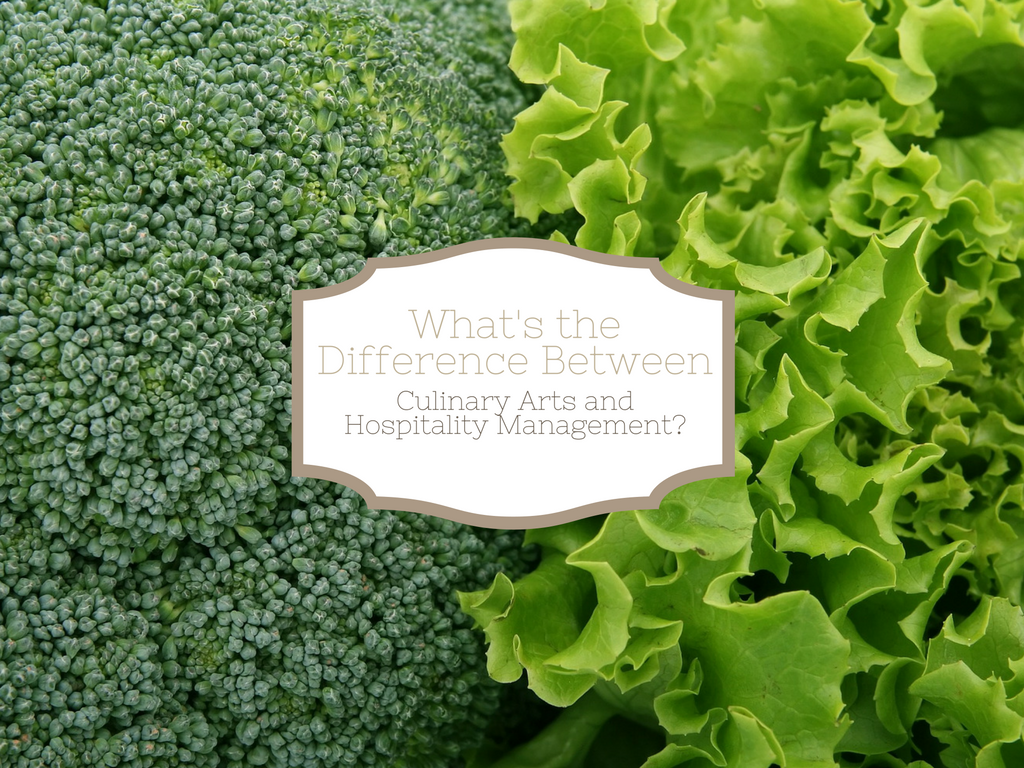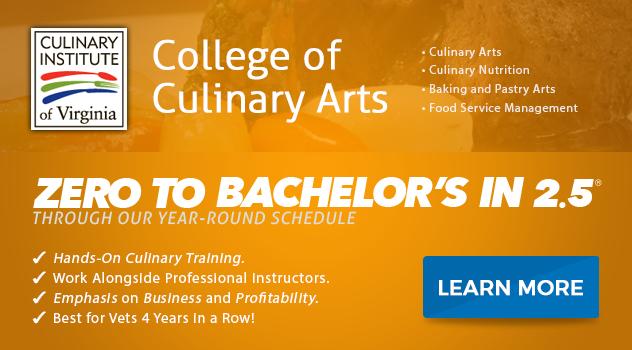
What’s the Difference Between Culinary Arts and Hospitality Management?
Do you love the art of cooking and dream of running a great restaurant? Or does managing and catering an event for 1500 people sound appealing? If you are wondering which path better suits you, what you're really mulling over are the differences between a culinary arts program of study and a degree in hospitality management.
What are the Culinary Arts?
Culinary Arts involves is the science and art of menu planning, meal preparation, and food service management. Whether you are preparing food for a niche French café or an event for 500, there are basic skills you will need to be efficient when handling various types of foods and preparing dishes for your customers and patrons. A Culinary Arts associate degree program is designed to build cooking knowledge and strong technical cooking skills.
What You Will Learn
Although there are ways to learn these skills slowly on the job, a structured culinary arts program could teach you culinary skills in a formal educational setting. These skills include:
- Knife skills
- Mise en place
- Kitchen organization
- Fundamentals of baking
- Cooking methods such as searing and braising
- Principles of cooking such as use of heat management
- Fabricating meat, poultry, and seafood
As you move through a culinary arts program, you may choose to take additional courses that cover kitchen management such as managing staff and inventory control that will be helpful in running a kitchen as a sous or executive chef. You may also select additional advanced courses to enhance your skill and knowledge repertoire such as international or fusion cuisine, presentation techniques, and artistry.
What is Not Included
A culinary arts program is very hands-on, with each student learning food handling, preparation, and artistry techniques under the skillful eye of a chef instructor. You will also learn some basic restaurant management skills in the advanced courses, such as supervising and budgeting, so you can enter the restaurant industry and have basic skills to run a profitable and safe dining experience for your patrons.
What is not included in a culinary arts program is an in-depth examination of the business side of running a restaurant or food service operation as part of a larger organization such as a college, event venue, or hospital. For example, you may learn supervisory skills for a kitchen staff but you may not learn the entire process of talent management for an entire business.
If you prefer to manage a restaurant, both the “front” of the house (the wait staff, bar staff, and kitchen staff) in a larger setting, then a degree in hospitality management may be a great fit for you.
What is Hospitality Management?
Hospitality Management involves managing and overseeing the services of hotels, larger restaurants holdings, casinos, resorts, cruise ships, movie theaters, and other businesses that provide a variety of hospitality services to guests.
What You Will Learn
In a hospitality management program of study, you will learn business principles of restaurant management, as well as business knowledge and skills to prepare you for managing hospitality services in various types of businesses in the industry. The baccalaureate program of study is based on coursework that includes:
- Marketing/Sales
- Human Resources
- Accounting
- Economics
- Cost Control
- Operations Management
You may choose elective courses based on your area of interest, such as wine or beverage management, direct restaurant management, or leadership. The program is designed to help graduates manage services in various entities across the hospitality industry.
What is Not Included
A baccalaureate program does generally not provide skill-specific expertise in the culinary arts such as cooking principles and direct, hands-on food preparation expertise. In other words, you may learn the business side of purchasing large quantities of beef, poultry, and seafood, but you may not necessarily learn how to prepare a beef filet or a Sole Meunière.
Are You Hungry To Learn More?
Whether your interest lies in earing an Associate of Applied Science in Culinary Arts or you’d rather study toward a Bachelor of Science in Business Administration, ECPI University could help you achieve your goals. With accelerated, year-round classes, earning your degree could be done quickly and with the hands-on training you need. Contact ECPI University today to see if one of our programs would be a great fit for you.
It could be the Best Decision You Ever Make!
DISCLAIMER – ECPI University makes no claim, warranty, or guarantee as to actual employability or earning potential to current, past or future students or graduates of any educational program we offer. The ECPI University website is published for informational purposes only. Every effort is made to ensure the accuracy of information contained on the ECPI.edu domain; however, no warranty of accuracy is made. No contractual rights, either expressed or implied, are created by its content.
For more information about ECPI University or any of our programs click here: http://www.ecpi.edu/ or http://ow.ly/Ca1ya.




